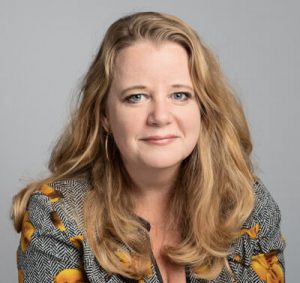-
- YASAS is SAPEA’s youngest network, in both of its meanings, can you tell us something about the creation of YASAS?

- YASAS is SAPEA’s youngest network, in both of its meanings, can you tell us something about the creation of YASAS?
The European Network of Young Academies(ENYA) has been, and still is, an informal forum for Young Academy Members, to share experiences and best practices, as well as discuss joint initiatives. There has been a longstanding debate about the need for and advantages of creating a more formalised network (so far the informal network was sufficient), in particularly in the context of the involvement of EMCRs in more political routes, like scientific advice.
Finally, motivated by the possibility of joining the SAPEA consortium as a full member, during the Annual Meeting of European Network of Young Academies on 4-5 July 2020 we have made a decision on a) formalising a network of Young Academies for the purpose of joining SAPEA, and b) formed a working group to finalise a preparation of statutes of the new organisation. The first founding meeting took place on 6th of November 2020 during which 14 founding members created YASAS with the Young Academy of Europe as a legal representative, and the Global Young Academy providing interim administrative support for the network. During that meeting the first President (Jacek Kolanowski, Polish Young Academy) and Executive Board Members (Moniek Tromp – Young Academy of Europe, Marie-Jose van Tol – Dutch Young Academy, Maral Dadvar – Global Young Academy, and Lukas Haffert – German Young Academy) were elected. This group then commenced discussions with SAPEA on its proper embedding and functioning, participated in its activities as observer and worked on the preparation of the grant proposal for the continuation of SAPEA. Since May 2022 the new SAPEA grant has started, with YASAS as a full partner and as such joined in its activities. A further 15th member was added. On September 30th, 2022 YASAS board composition changed during its general assembly and the current YASAS board consists of Moniek Tromp (Young Academy Europe) as president, Jacek Kolanowski (Polish Young Academy), Viktorija Vastakaite-Kairiene (The Young Academy of the Lithuanian Academy of Sciences), Helen Eenmaa-Dimitrieva (Estonian Young Academy of Sciences), and Sarah Verhulst (De Jonge Academie, Belgium).
- Who got the initial idea of creating YASAS?
Some of the ENYA members were members or partners of one of the SAPEA partner networks and, as such, involved in SAPEA, but making an impact among the many senior academies and fellows was difficult. At the same time, it was obvious to many young academies (and discussed at ENYA meetings) that the involvement of EMCRs in science advice mechanisms (SAPEA, SAM, but also national ones) was often rare or limited. Smaller groups of EMCRs and young academies convened to discuss how to bring this forward. For example, the YAE, the German Young Academy (and Leopoldina) and the Global Young Academy had early discussions (late 2019, early 2020) on how this involvement could be improved, which was then discussed and taken further at the July 2020 ENYA meeting (as described above). The discussions and process were fully supported by the SAPEA chair (at the time, Sierd Cloetingh) and coordinator (Rudi Hielsscher).
- Why is it important to present early-career academics?
Early-and-Mid Career Researchers (EMCRs) have been underrepresented in the scientific advice mechanism and this is critical to:
- ensure highest quality of advice through ensuring diversity in points–of–view/opinions. SAPEA is unique in its approach by providing equal ground for EMCRs to take part and even shape science advice mechanisms.
- to provide recognition of science advice mechanisms by a wider community of researchers and institutions and identify systemic obstacles in the involvement of scientists in these mechanisms
- to provide exposure and training for the new generations of experts
- and enable these younger people have a say in THEIR future
- What are YASAS’s future plans and projects?
YASAS has been created with a specific purpose of involvement in Scientific Advice Mechanism for EC through SAPEA. While ENYA remains an informal structure and platform for Young Academies to exchange ideas, YASAS focus is to contribute to the increase in the participation of EMCRs in science advice. It does so by pursuing proper recognition of that participation, as well as modifying mechanisms of SAPEA and SAM to improve the quality of scientific advice by ensuring transparency and diversity, e.g. opening up the concept of scientific excellence of experts, originally favouring a traditional scientific career paths, to a wide range of diverse expertise, pathways and backgrounds.
- Can you share with us some (academic) reactions or feedback that you got on the creation of YASAS?
Internally within the entire SAM/SAPEA organisation there is a lot of support. We are new in the partnership, ask a lot of questions and are critical, but this improves the processes and organisation, and all appreciate that. On the outside, many now also recognise the importance of science advice mechanisms and the role scientists have in this (also in relation to the Recognition and Rewarding movements, Open Science effort, the recently established CoARA, etc). Nevertheless, we often hear worries and comments which relate on the one hand to “compromising on scientific excellence” through involvement of EMCRs (often largely due to a conceptual conviction that scientific excellence needs to equal seniority) and on the other hand the lack of understanding of the benefits of the involvement of EMCRs in scientific advice (for EMCRs and their career), coming from both scientists and institutions. These are important aspects for us, as well as SAPEA as a whole, to work on.
